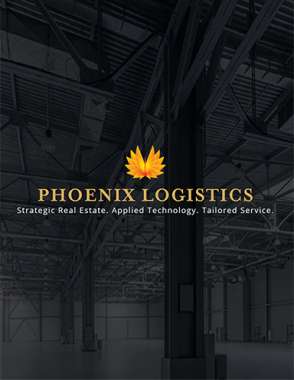4 Ways the Great Resignation is Impacting Industrial Real Estate

Though industrial has positioned itself as an undisputed leader in commercial real estate since the pandemic hit, even this sector feels the impact of labor shortages, this article will discuss how The Great Resignation has affected industrial real estate.
THE GREAT RESIGNATION
Most of the world is currently dealing with a phenomenon known as “The Great Resignation.”
This name refers to an ongoing trend of corporate employees quitting their jobs in large numbers due to inadequate pay or benefits, cost of living in their region, COVID-19 health policies, desire for remote work, general job dissatisfaction, and many other reasons.
While the labor market will inevitably find ways to correct itself, the timing of when this could happen remains fuzzy.
In the meantime, every labor market segment is striving to find ways to adapt to the latest trends.
Industrial real estate is no exception. Though industrial has positioned itself as an undisputed leader in commercial real estate since the pandemic hit, even this sector feels the impact of labor shortages. This article will discuss how The Great Resignation has affected industrial real estate.
UNDERSTAFFING
Industrial verticals like warehousing have always suffered from high turnover, but those numbers soared during the pandemic. In 2020, the Bureau of Labor Statistics reported a 59.1% turnover rate in transportation, warehousing, and utilities, dropping to a still-high 49% in 2021. Manufacturing also suffered from high turnover in both years, with 44.2% in 2020 and 39.9% in 2021.
Perpetual understaffing has made it difficult for some logistics and manufacturing operations to operate at full capacity or to expand. These challenges would’ve had a more noticeable impact on the industrial real estate sector if an e-commerce boom hadn’t spiked warehouse demand for the past two years. If the Great Resignation lasts beyond the point when industrial supply and demand begin to balance, industrial brokers and property owners may feel the impact more.
FINANCING
Over the past several years, the strength of the industrial market resulted in extensive funding options for investors and other stakeholders looking to build or renovate industrial inventory. However, as the United States teeters on the edge of a recession, financiers may look to tighten their belts even as they strive to hire. CRE mortgage services have certainly not escaped The Great Recession, and some experts fear rising labor costs may negatively affect the amount of capital available for lending.
CONSTRUCTION
Construction had a labor shortage problem long before The Great Resignation came along and exacerbated it. As a result, developers can’t hire new workers at the same rate they’re losing them, directly impacting their ability to develop new industrial facilities. Even worse, about 1/5 of construction workers are set to retire in the next six years, suggesting that construction’s labor problem will outlast the broader Great Resignation trend, just as it preceded it.
That said, developers will press on and continue delivering new industrial inventory at the fastest pace possible. Without the ability to fully staff job sites, however, it will take much longer for industrial supply to catch up with demand than most CRE stakeholders would like.
SUPPLY CHAIN
Even if construction could solve its hiring and retention problems overnight, projects would still get delayed due to a shortage of critical building assets, such as steel and roofing materials. Labor issues sit near the top of a long list of problems causing continuous disruptions in the global supply chain. With talent shortages hitting manufacturers, warehouses, ports, carriers, and everything in between, getting critical building materials from Point A to Point B has become exceptionally challenging.
The building material supply chain can’t become truly resilient until the labor challenges that cause disruptions get addressed. Unfortunately, since there is no simple answer to this problem, building material shortages will continue fueling the industrial real estate shortage for the foreseeable future.
ABOUT PHOENIX INVESTORS
Founded by Frank P. Crivello in 1994, Phoenix Investors and its affiliates (collectively “Phoenix”) are a leader in the acquisition, development, renovation, and repositioning of industrial facilities throughout the United States. Utilizing a disciplined investment approach and successful partnerships with institutional capital sources, corporations, and public stakeholders, Phoenix has developed a proven track record of generating superior risk-adjusted returns, while providing cost-efficient lease rates for its growing portfolio of national tenants. Its efforts inspire and drive the transformation and reinvigoration of the economic engines in the communities it serves. Phoenix continues to be defined by thoughtful relationships, sophisticated investment tools, cost-efficient solutions, and a reputation for success.
More Supply Chain 24/7 Content from Phoenix Logistics
Article Topics
Phoenix Logistics News & Resources
4 Best Practices for Online Order Fulfillment In 2023 Is Industrial Real Estate Recession-Proof? 9 Tips for Offsetting Rising Parcel Rates Tips for Retaining Your Peak Season Temp Labor The Great Decoupling and What It Means for Industrial Real Estate How Does the Inflation Reduction Act Impact Industrial Real Estate? Not in My Backyard: Warehouse Edition More Phoenix LogisticsLatest in Warehouse|DC
GXO and Conair Open Maryland’s Largest Distribution Center Robots are Enhancing Human Workers, Not Replacing Them Why Companies are Pushing for a Quieter Warehouse Meet Bluicity: The Startup That’s Predicting and Perfecting the Supply Chain Retailers Take Lead in Big-Box Warehouse Leasing, CBRE Finds Senators Take Aim at Amazon with Warehouse Worker Protection Act Talking Supply Chain: Supply chain’s watchdog More Warehouse|DC













